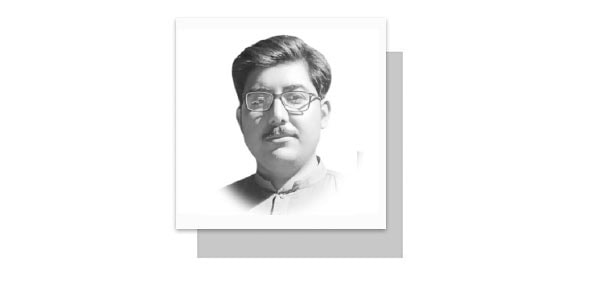RECENTLY, the Election Commission of Pakistan (ECP) released new data revealing that the country’s electorate has now reached 133.42 million.
While this marks a significant milestone in Pakistan’s democratic journey, a glaring concern persists—the 7% gender gap in voter registration.
This disparity underscores a broader issue: the continued challenges women face in achieving equal political participation.
Despite Pakistan’s democratic progress, the electoral gender gap remains a critical issue.
With women constituting nearly half of the country’s population, their under representation in the electoral process highlights structural and societal barriers that hinder their full political engagement.
The 7% gender gap translates to millions of women who are either not registered or face obstacles in exercising their voting rights.
Various factors contribute to this disparity, including cultural norms, lack of awareness, bureaucratic hurdles in obtaining identity documents and even outright disenfranchisement in some conservative regions where women are discouraged—or even barred—from voting.
Several structural barriers continue to limit women’s political participation in Pakistan.
The Computerised National Identity Card (CNIC) issued by NADRA (National Database and Registration Authority) is a prerequisite for voter registration.
Many women, particularly in rural areas, do not possess a CNIC due to cultural restrictions or logistical challenges in obtaining the document.
In some regions, women face societal pressures that discourage political participation.
Traditional patriarchal values often relegate women to domestic roles, limiting their access to political information and decision-making platforms.
Many women remain unaware of their voting rights due to limited access to education and political literacy programmes.
This lack of awareness reduces their ability to make informed political choices.
Pakistan’s political sphere remains overwhelmingly male-dominated.
Women face challenges in securing party tickets, campaigning freely and navigating the often-hostile political environment.
This under representation in leadership further discourages female voter turnout and political participation.
A democratic system thrives when all citizens, regardless of gender, have an equal say in governance.
The under representation of women in the electoral process has several consequences.
A democracy that does not fully reflect the voices of its population lacks legitimacy.
When millions of women are excluded from the voting process, the elected leadership does not accurately represent the interests of all citizens.
When women are underrepresented in the electorate, their concerns—such as gender-based violence, maternal health and economic empowerment—receive less political attention.
This translates into policies that fail to address crucial gender issues effectively.
Political exclusion further entrenches gender disparities, making it more difficult for women to claim leadership positions, influence policies and shape the national discourse on equality.
Recognising the urgency of addressing this issue, various stakeholders—including the government, civil society organisations and international bodies—are taking steps to increase women’s electoral participation.
The ECP, in collaboration with NADRA, has launched awareness campaigns encouraging women to register for CNICs.
Mobile registration units have been deployed to reach remote areas where women may not have easy access to NADRA offices.
Pakistan’s election laws now mandate that at least 10% of a constituency’s voters must be female for election results to be considered valid.
This measure aims to encourage political parties to mobilise female voters actively.
Several political parties have introduced women-centric manifestos and policies to appeal to female voters.
Increased representation of women in party leadership is also being encouraged.
NGOs and advocacy groups continue to play a crucial role in educating women about their voting rights and addressing barriers to participation.
Grassroots campaigns have proven effective in challenging cultural resistance and empowering women to take part in elections.
Multiple initiatives have been taken; however, the implementation is inadequate.
Pakistan stands at a critical juncture in its democratic evolution.
The increase in registered voters is a positive sign of political engagement, but the persistent 7% gender gap remains a major concern.
If Pakistan is to achieve true democratic representation, it must ensure that all citizens—regardless of gender—have an equal opportunity to participate in the electoral process.
Bridging this gap is not just a matter of policy; it is a fundamental step toward a more inclusive, fair and representative democracy.
— The writer is an educator, based in Sindh. (channaassadullah320@gmail.com)


















